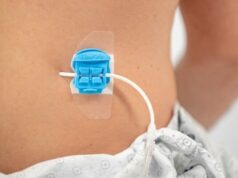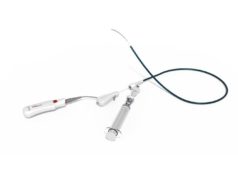 New single-centre clinical study data published in the Journal of Neuroradiology claims to support Anaconda Neurovascular Access (ANA) catheter system for the treatment of ischaemic stroke.
New single-centre clinical study data published in the Journal of Neuroradiology claims to support Anaconda Neurovascular Access (ANA) catheter system for the treatment of ischaemic stroke.
Investigators at Hospital Vall d’Hebron, Barcelona, Spain, are participating in the multi-center SOLONDA (“SOL”itaire in combination with the ANA Catheter system manufactured by Anac”ONDA”) clinical trial, a 125-patient, prospective study that will assess system safety and reperfusion measured using the modified treatment in cerebral infarction (mTICI) score.
Hospital Vall d’Hebron investigators followed 35 consecutive patients, with published results as follows:
- The primary endpoint, defined as successful reperfusion (mTICI 2b-3) within three passes without rescue therapy, was achieved in 91.4% of patients, with a rate of complete reperfusion (mTICI 2c-3) of 65.7%
- The rate of first-pass complete recanalisation (mTICI≥2c) was 42.9%
- The rate of sudden recanalisation was 82.9%
- The median number of ANA Catheter System passes was one
“The ANA device showed promising high rates of first-pass complete recanalisation,” Alejandro Tomasello (Hospital Vall d’Hebron, Barcelona, Spain), lead author and principal investigator of this study. “We hope that the device completes the regulatory process soon.”
According to a press release from the company, Anaconda’s investigational ANA catheter system consists of a funnel-shaped delivery and aspiration catheters to be used in combination with a stent retriever. When deployed, the funnel self-expands and directly conforms to the artery diameter up to 5mm. It is designed to locally restrict flow and allow full thrombus extraction without fragmentation. The SOLONDA study aims to validate earlier testing that achieved statistically significant improvement in revascularisation rates at both first and third pass.
“Vall D’Hebron’s early results are fulfilling our expectations for the safety and efficacy of the ANA System,” said Francois Salmon (Barcelona, Spain), CEO of Anaconda Biomed. “Its performance in this study, which was designed with great clinical rigour, is a testament to the system’s potential to benefit physicians and patients.”













